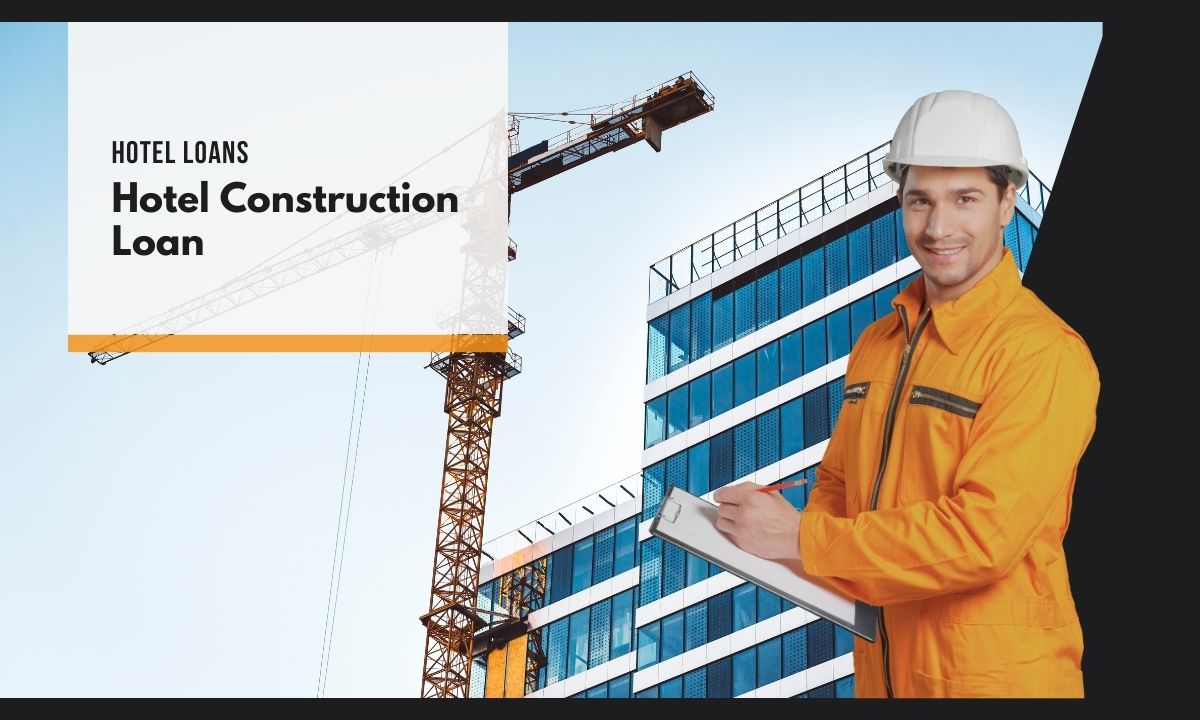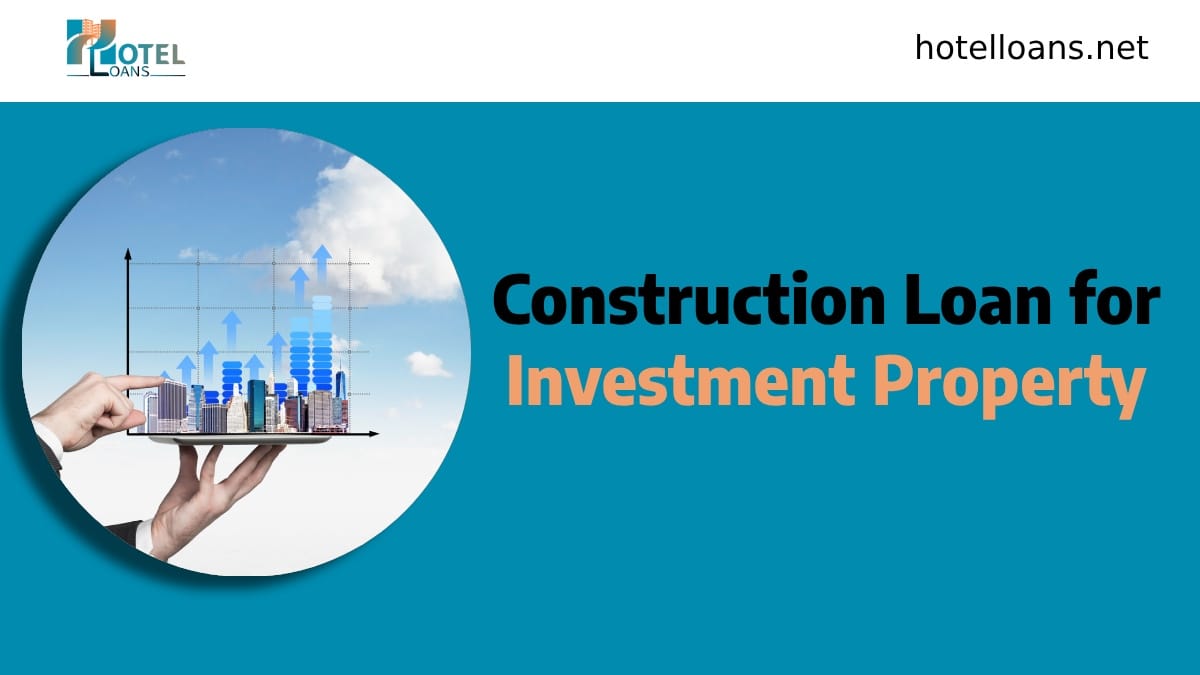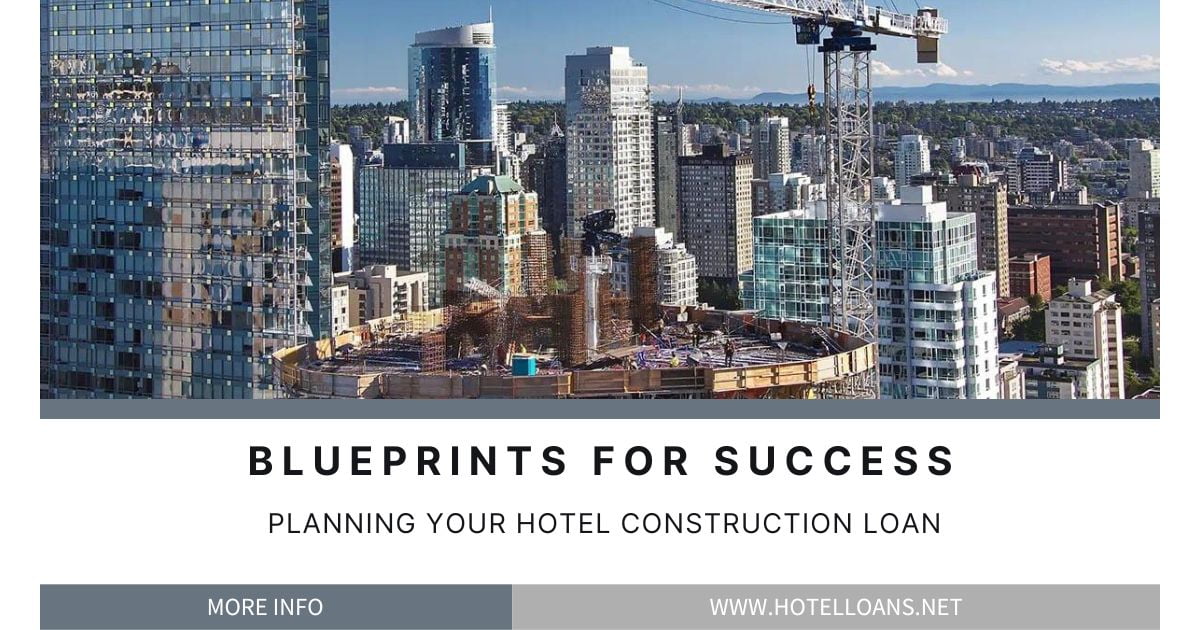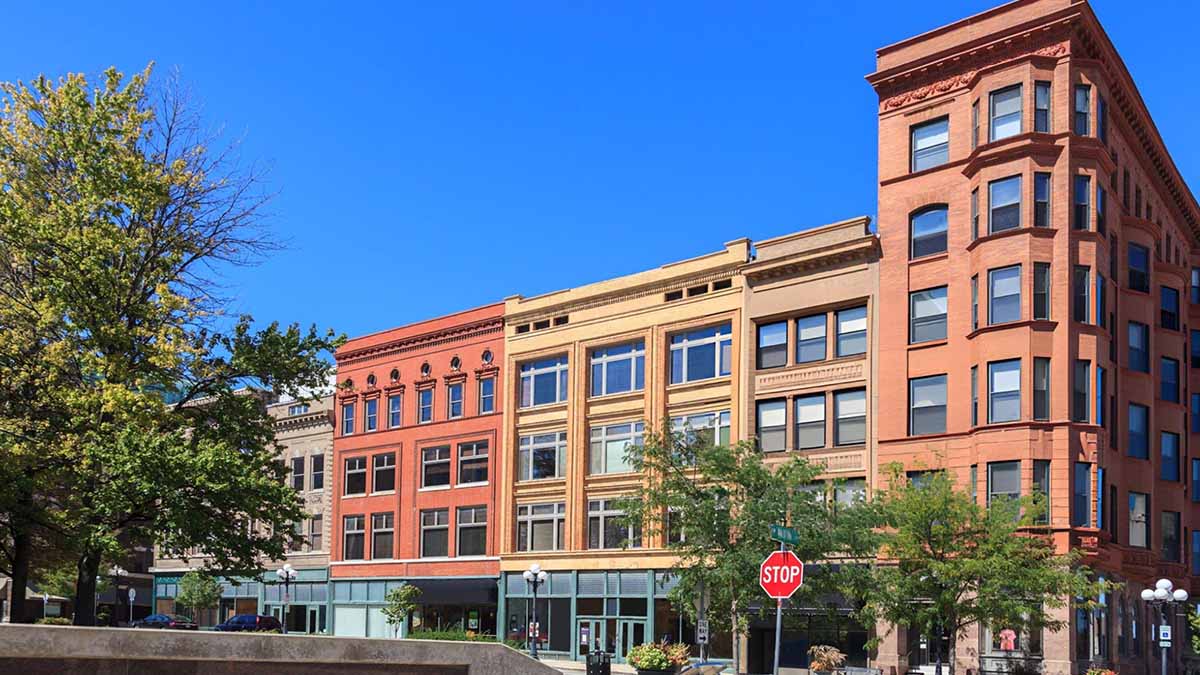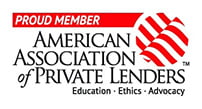The hotel business has a lot of competition, so people who want to open their own should ensure they have enough money. Getting loans to construct a hotel is key to reaching big growth goals. You can get these loans to get the cash you need to buy land, build infrastructure, schedule rooms, and furniture, and pay for everything else that goes into opening or fixing up a hotel.
A hotel construction loan is difficult because so many people want one. You need to plan well and make a strong application. This blog post offers valuable details and advice to assist individuals seeking loans. People who want to open a hotel have a better chance of getting the money they need if they have a well-thought-out plan and know what to consider.
Table of Contents
ToggleUnderstanding Hotel Construction Loans
Specifically created to help pay for the construction or remodeling of hotel properties, hotel construction loans make it possible. Traditional loans are usually used to buy already-owned property. Conversely, construction loans provide the necessary funds to construct or fundamentally alter a hotel.
Disbursement Structure: A Phased Approach
Construction loans are usually given out in steps matching essential project milestones. This step-by-step process lowers the risk for both the investor and the borrower. Some standard stages are:
Land Acquisition: Money to buy the land where the hotel will be built.
Site Preparation and Foundation: The money to clear the land, test the dirt, and lay the foundation.
Shell construction means getting money to build the building’s frame, which includes the walls, floors, and roof.
Interior fit-out means getting money to pay for things like plumbing, electricity work, and HVAC systems inside the building.
Furniture, Fixtures, and Equipment (FF&E): Money for furniture, cooking appliances, and other comforts.
Key Factors Considered by Lenders
When lenders look at an application for a hotel construction loan, they carefully consider several factors, such as:
A project feasibility study examines the likelihood of success by reviewing market demand, competition, and the expected financial return on the project.
Experience: How long has the borrower worked in the hospitality business, and how well have they managed projects in the past?
Financial Strength refers to the borrower’s ability to repay the loan, contribute equity, and be creditworthy.
Management Team: How good and experienced are the people in charge of building and running the hotel?
Plan for leaving: A clear plan for paying back the loan could include selling or refinancing the house.
Aspiring hoteliers can improve their chances of getting the money they need to complete their projects by learning about the specifics of hotel construction loans and what lenders look at most closely.
Essential Steps for a Successful Hotel Construction Loan Application
Developing a Compelling Business Plan for Hotel Construction
To get a hotel construction loan, you need a well-written business plan. This plan shows potential investors that the project is possible and acts as a road map. The plan should clarify what the hotel is about, the target market, the competitors, and how much money the hotel expects to make.
Key Components of a Successful Business Plan
Executive Summary
This summary should get to the heart of the project and show how likely it is to succeed.
Talk about the hotel’s main features, unique selling proposition (USP), and expected return on investment.
Market Analysis
Find out a lot about the target market by doing things like
Demographics: Look at possible guests’ ages, incomes, travel habits, and personal tastes.
Trends in Travel: Learn about the latest travel trends, such as work travel, leisure tourism, and niche markets like wellness travel and eco-tourism.
Competitive Analysis: Look at the other hotels in the area and determine what makes them good and evil and how they set their prices. Find competitive advantages and ways to make the suggested hotel stand out.
Hotel Concept
Brand positioning: Describe the hotel’s brand, who it’s aimed at, and what kind of experience you want your guests to have (luxury, small, budget-friendly, etc.).
Nice things: Give specifics about the expected amenities, like
Guest Rooms: How many rooms there are, what kind of rooms they are (standard, suites, etc.), and what services are in each one (Wi-Fi, minibar, in-room entertainment, etc.).
The following are places open to the public: the lobby, restaurant(s), bar, meeting rooms, exercise center, pool, spa, etc.
What is unique about this hotel that makes it stand out? Some examples are a special place, excellent service, new features, and eco-friendly ways of doing things.
Development Plan
Construction Timeline: Make a thorough project schedule that lists all the stages of construction and gives you an idea of when they will be finished.
Plan your budget: Make a sensible budget that includes
Costs of buying land
Costs of building (labor, supplies, and permits)
Fees for architects and engineers
The cost of furniture, fixtures, and equipment (FF&E)
Fees for lawyers and consultants
Savings account for unplanned costs
Project Team: Describe the experience and skills of the architects, engineers, builders, and project managers who will be working on the project.
Financial Projections
Revenue Projections: Make predictions about expected sources of income, such as:
Revenue from rooms, food and drinks
Meeting and event money
Other ways to make money, like spa services and parking
Predictions of costs: Figure out your running costs, such as
costs of labor (wages, perks, and salaries)
Basic Needs
Fixing and maintaining things
Buying things and ads
Taxes and insurance on property
Analysis of Profitability: Calculate the hotel’s net income and return on investment (ROI) over a certain period, like 5 to 10 years.
KPIs, or key performance indicators, monitor the hotel’s occupancy rates, average daily rate (ADR), and income per available room (RevPAR) to gauge its performance.
By carefully crafting and presenting an impressive business plan, aspiring hoteliers can significantly improve their chances of getting the money they need to realize their dreams.
Strengthening Your Financial Position for Hotel Construction Loans
Personal and business credit is crucial when applying for a hotel construction loan. Your lender will carefully examine your finances to see if you can repay the loan and handle the risks associated with the project.
Key Strategies to Enhance Creditworthiness
Maintain a Healthy Debt-to-Income Ratio
Personal Debt: Avoid taking on too much personal debt. Lenders may consider a high debt-to-income ratio a sign of financial instability.
Business Debt: Keep your business debt to a minimum and repay your loans on time.
Establish a Positive Payment History
Credit: Always promptly pay your loan, credit card, and energy bills. Repeatedly making payments on time shows that you are responsible for money.
Business Credit: Pay all bills related to your business on time, like staff salaries and supplier invoices.
Build a Strong Credit Score
Personal Credit Score: Check your credit score often and make changes to it if you need to.
Business Credit Score: Get business credit cards and lines of credit to build and maintain a good business credit score.
Additional Strategies to Bolster Your Loan Application
Secure Additional Equity
Give a large chunk of your savings to the project. This shows that you’re serious and lowers the lender’s risk.
Sell Assets: You can sell personal or business assets for more property.
Attract Investors
Partnerships: Work with investors who can give you money and advice on the business.
Crowdfunding: Check out sites for crowdfunding to get more investors.
Carefully managing your money and showing that you are fully committed to the project can significantly improve your chances of getting a hotel construction loan.
Assembling a Qualified Team for Hotel Development
Building a strong team of experienced professionals is crucial for the success of a hotel development project. Each member brings unique expertise that contributes to the project’s feasibility, mitigates potential risks, and ultimately enhances the chances of securing a construction loan.
Key Team Members and Their Roles
Architects
Plan the hotel’s structure, following all local and building rules.
Create spaces that look good and work well, and ensure they match the hotel’s name and target market.
Help make the project more cost-effective and long-lasting as a whole.
Engineers
Ensure the construction is safe and strong by observing its structure.
Plan and set up the building’s mechanical, electrical, and plumbing (MEP) systems.
Help make the project more energy-efficient and better for the earth.
Contractors
Oversee the construction process and ensure it’s finished on time and budget.
Manage freelancers and monitor the quality of their work.
Reduce potential construction risks and address any unforeseen issues.
Hospitality Consultants
Give professional tips on market trends, business plans, and how to make money.
Help create the hotel’s brand identity and place it in the market.
Do market research and viability studies to help guide the project’s growth.
By assembling a qualified team with various skills, aspiring hoteliers can navigate the complicated process of building a hotel, improve the project’s chances of success, and eventually make themselves more appealing to lenders.
Researching and Comparing Loan Options for Hotel Construction
Getting the proper funding is very important for building a hotel. Those who want to open a hotel should carefully look into and compare the different loan choices available to them to find the best one for their needs and situation.
Types of Hotel Construction Loans
Loans from traditional banks
Commercial banks and credit unions offer this service.
Usually, you need a good credit background and a detailed business plan.
Rates of interest can be set or changed over time.
The rules for paying back a loan depend on the amount borrowed and the borrower’s financial situation.
Small Business Loans
With help from the Small Business Administration (SBA).
Offer better terms than standard bank loans, such as longer repayment terms and lower interest rates.
The standards for eligibility may be stricter.
Loans for Hard Money
Loans for a short time that cost more and have higher interest rates.6
It’s often used for projects that can’t get standard loans.
They usually have shorter terms for paying them back and require a more significant down payment.
Factors to Consider When Comparing Loan Options
Rates of Interest
The interest rate significantly affects how much it generally costs to borrow money.
Find the best deal on interest rates by comparing those of different companies.
Conditions of the loan
Think about the loan’s payback term and any fees for paying it off early.
Pick a term that fits how much money you think the project will make.
Costs
Know any associated fees, such as origination fees, closing costs, and fines for paying off the loan early.
Add these costs to your project’s general budget.
Conditions for Eligibility
Make sure you meet the requirements for each type of loan.
This could include the minimum credit score, debt-to-income ratio, and whether the job is possible.
Consulting with a Loan Broker or Financial Advisor
Finding your way around the complicated world of hotel construction financing can be challenging. Talking to a skilled loan broker or financial advisor can help you in several ways:
Having Access to More Lenders: Loan brokers work with many lenders, giving you choices you might not have considered.
Help from an Expert: Financial advisors can give you helpful information about the loan application process and help you pick the best way to finance your project.
Help with Negotiations: Loan agents can talk to lenders on your behalf and get you better terms.
You can improve your chances of getting the loan you need to finish your hotel development project by carefully researching loan choices, being clear on how much money you need, and getting professional advice.
Comprehensive Loan Application Package for Hotel Construction
You must ensure your loan application package is well-organized to get the loan money you require to construct your hotel. Below is a list of the most important documents that lenders usually need:
1. Completed Loan Application Form
Provide in-depth information about the client, the project, and the request for a loan.
2. Detailed Business Plan:
Executive Summary: A short project summary showing how it might work out.
Market analysis involves closely closely examining the target market, its trends, and other companies in the same niche.
Hotel Concept: A full explanation of the hotel’s name, services, and unique selling point.
Development Plan: A detailed schedule, price, and list of the people working on the project.
Financial projections are accurate guesses of how much money the hotel will make, spend, and profit over a certain period.
3. Pro Forma Financial Statements
Forecasted Income Statements: Guess how much money the hotel will make and spend over a specific time frame.
Forecasted Balance Sheets: Balance sheets show what the hotel owns, owes, and how much wealth it has over time.
Forecasted Cash Flow Statements: Predict how much cash the hotel will receive and spend to ensure it has enough money.
4. Construction Budget Breakdown
A detailed, itemized list of all the prices of the construction, including
Costs of buying land
Costs of building (labor, supplies, and permits)
Fees for architects and engineers
The cost of furniture, fixtures, and equipment (FF&E)
Fees for lawyers and consultants
Savings account for unplanned costs
5. Project Timeline and Milestones
Detailed project schedule outlining all phases of construction with estimated timelines for completion.
6. Market Analysis and Feasibility Studies
Comprehensive research on the target market, travel trends, and competitive landscape.
Feasibility studies demonstrating the project’s potential for success.
7. Personal and Business Financial Statements
Personal Financial bills include credit reports, tax returns, and bank bills.
Business financial statements include balance sheets, cash flow, and profit and loss statements for already-established companies.
8. Permits and Licenses
Documentation of all necessary permits and licenses obtained or in the process of being obtained.
9. Experience and Qualifications of the Development Team
Resumes and experience summaries of key team members, including architects, engineers, contractors, and hospitality consultants.
Additional Documents (May be Required)
Impact studies on the environment
Review of
Certificates of insurance
Legal papers, like land contracts and partnership deals
Lenders might have specific needs for loan applications. It’s essential to read the lender’s rules carefully and assemble a complete package that answers all their questions.
By carefully assembling and presenting a well-organized loan application package, you can significantly improve your chances of getting the loan you need for your hotel building project.
Maintaining Clear Communication with Lenders
Communication is essential throughout the process of applying for a hotel construction loan. It builds trust, makes things easier for the customer and the lender, and ensures everything goes smoothly.
Key Communication Strategies
Replies quickly and professionally
Respond quickly and professionally to loan questions and requests for information.
Take an active and well-organized attitude to the application process.
Stay clear and to the point when you talk to people, and don’t use uncertainty or jargon.
Take care of lenders’ worries
Deal with any worries or questions that the loan brings up.
Give complete and correct information to back up the viability of your idea.
Be ready to discuss any possible risks or problems and your plans for dealing with them.
Make your relationships stronger.
Set up and keep up regular lines of contact with your loan officer.
Always treat others with care, be professional, and be honest.
Make a good connection with the lender so they can trust and believe in your idea.
Benefits of Effective Communication
Faster Processing: Quick and precise contact can speed up the loan application process.
Better Negotiation: Being open and honest with each other can help talks go more smoothly, which could lead to better loan terms.
Increased Confidence: If you communicate clearly and consistently, the lender will believe in your ability to run the project and repay the loan.
By prioritizing clear and effective communication, you can significantly improve your chances of getting a hotel construction loan and having a good long-term relationship with your lender.
Additional Tips for Success in Hotel Construction
1. Develop a Realistic Construction Budget
Include a buffer: Set aside a fund if your costs exceed the budget or you must pay for something unexpected.
Get More Than One Quote: Get quotes from reputable contractors to ensure you get the best deals and find the cheapest choices.
Review and Adjust Often: The budget should be reviewed and adjusted often during construction to account for unexpected changes or cost increases.
2. Focus on Risk Mitigation Strategies
Proactive Risk Identification: Make a list of possible dangers that could happen with the project, such as
Bad weather, a lack of workers, or problems in the supply line can cause construction delays.
Material Shortages: The cost of materials might increase, or it might be hard to get the needed materials.
Market fluctuations are changes in interest rates, vacancy rates, or competition amounts.
Problems with Permits: Delays or rejections of necessary permits.
Make plans for what could go wrong: Develop detailed plans to deal with possible risks and minimize their effects on the project’s schedule and budget.
Consider other suppliers, change the timeline for construction, and consider different ways to pay for it.
3. Negotiate Favorable Loan Terms
Read over loan agreements carefully: Look over the loan deal very carefully. Pay close attention to the interest rates, loan-to-value ratios, repayment schedules, and any penalties for paying off the loan early.
Talk to lenders about it: Your sound finances and the fact that the project will work will help you get better terms.
Consider different loan structures, like when you only pay the interest or partial amortization.
4. Seek Professional Guidance
Talk to Legal and Financial Experts: Hire legal and financial experts to help you negotiate a loan and advocate for your best interests.
Use your team’s skills: Use the knowledge of your development team (architects, engineers, and workers) to identify and manage possible risks and secure good contracts.
By carefully considering these extra tips, people who want to become hoteliers can improve their chances of overcoming the difficulties of building a hotel and reaching their growth objectives.
Financing Options for Hotel Construction Projects
Getting enough money is very important for the success of any hotel construction project. These are some of the main ways to get financing:
A. Traditional Bank Loans
Process
To get a standard bank loan, you must complete a lengthy application that includes your personal and business finances and financial projections. The bank will then assess whether the borrower has good credit, whether the project is possible, and how risky it is.
Needs and Criteria for Underwriting
Strong Credit History: People and businesses with good credit scores are more likely to be accepted for loans.
Business Plan in Detail: A thorough and well-researched business plan that shows the project can work and make money.
Predictions about money: Financial predictions that are accurate and full of information, such as income statements, balance sheets, and cash flow statements.
Security: The land being built on could be used for the loan.
The debt-to-income ratio shows how much debt a person has compared to their income. It helps lenders decide whether the person can afford to pay back the loan.
The pros
Competitive Interest Rates: Traditional bank loans often have competitive interest rates compared to other ways to get money.
Longer Repayment Terms: Borrowers can have more freedom by extending their repayment terms.
Relationships That Are Already Strong: A strong connection with a bank can give you access to other financial services.
cons
Rigid Underwriting Process: The application process can take a long time and may require a lot of paperwork.
More strict qualifying requirements: Some people have trouble meeting the requirements for bank loans.
B. SBA Loans
The Small Business Administration (SBA) is a part of the US government that helps small businesses, such as hotel owners. It protects private lenders’ loans, lowering their risk and making it easier for small businesses to get money.
Who Can Apply? Wants and Needs and Advantages
Eligibility: A business must meet specific size and income standards to get an SBA loan.
Advantages: Loans backed by the SBA usually have better terms than regular bank loans, such as lower interest rates and longer repayment terms.
Different kinds of SBA loans
7(a) Loan: A general-purpose loan that can be used for many things, like building a hotel.
The 504 Loan is meant for long-term fixed assets like land and buildings. This means that it can be used for hotel construction projects.
C. Hard Money Loans
Hard money loans are short-term loans usually backed by property. They are used when traditional funding is challenging to obtain.
Features and traits
Higher interest Rates: The interest rates on hard money loans are usually higher than those on regular loans.16
Less Time: The repayment period for a loan is usually shorter, between 12 and 24 months.
Pay Attention to Property Value: Lenders mainly consider the value of the property being built as collateral.
Situations That Work
Projects That Are Hard to Finance: Hard money loans can be a good choice for projects that can’t get traditional financing because they are too risky or have unusual development plans.
Deadlines that are too short: They can help you get money quickly when needed.
Risks and Drawbacks
High Interest Rates: High interest rates can raise the job’s overall cost significantly.
Short Terms for Payback: The short payback terms can tighten cash flow.
Possible for Higher Risk: People who take out hard money loans may take on more risk.
D. Private Money Loans
Private money lenders are people or businesses that give money without going through banks.
Advantages
Faster Processing: In most cases, getting a private money loan is more rapid than getting a standard bank loan.
More Freedom: Lenders may be less strict about their lending requirements and more open to projects that don’t usually qualify for loans.
cons
More Expensive: These loans may be more expensive than regular loans.
Less Time to Pay: The time you have to pay may be less.
Finding Reliable Lenders: You must find private money lenders you can trust so you don’t fall for scams or unfair loan practices.
E. Other Financing Options
Business Lines of Credit can provide short-term working capital to help with day-to-day business. However, they might not be the best choice for big construction projects.
Merchant cash advances may have high fees, but they are suitable for companies that take credit cards.
Crowdfunding Platforms: Crowdfunding can help you get money from many people, but it can take a lot of time and might not be right for big projects.
The Importance of a Strong Cash Flow Statement
The cash flow statement is essential in applying for a hotel construction loan. It gives lenders a good idea of the project’s financial health and ability to make enough money to repay the loans.
Significance of a Strong Cash Flow Statement:
Proof of Financial Viability: A well-made cash flow statement shows whether the project can generate enough cash flow to cover its running costs, debt service payments (principal and interest), and unexpected costs.
Finds Possible Cash Flow Shortfalls: It helps find possible cash flow shortfalls during construction and running so risks can be reduced before they happen.
Assesses Project Risk: Lenders use the cash flow statement to determine how risky the project is and how likely they will be to get their money back. A good cash flow account means the lender doesn’t have to worry as much.
It helps with Loan Underwriting. Lenders evaluate loans using the cash flow statement to decide whether to give them money.
Key Components of a Cash Flow Statement
Projected Revenue: This includes all the money expected to come in, such as room rates, food and drink sales, event and meeting fees, and other small amounts.
Operating Costs: These are all expected costs related to running the business. They include rent, energy, repairs, marketing, and office supplies.
The principal and interest payments on the construction loan and other debt responsibilities are all part of the debt service payments.
Capital Expenditures are any planned costs, such as repairing things, improving them, or buying new stuff.
By carefully creating and presenting a strong cash flow statement, hotel developers can demonstrate that their project is financially viable and improve their chances of obtaining the money they need to build and run the hotel successfully.
Navigating the Challenges of the Hotel Industry
The hotel industry faces several significant challenges
Increased Competition
Traditional Hotels: There are many hotels on the market, all different sizes and prices, so there is a lot of competition for guests.
Alternative Places to Stay: The popularity of short-term rental sites like Airbnb and others has made the housing market much more competitive, giving travelers a wider range of choices that are often cheaper.
Changes in the economy
Recessions: When the economy is terrible, people spend less on travel, which means fewer rooms are rented and less money is coming in.
Inflation: When the prices of goods and services go up, it can be hard to keep prices competitive and make a profit.
Improvements in technology
Online Travel Agencies (OTAs): Expedia and Booking.com are two of the biggest OTAs, which gives them considerable market power.
Changing Expectations of Guests: Guests want more unique experiences, technology that works well with other technologies (like mobile check-in and bright room technology), and a strong online presence.
Developing a Robust Business Plan is Crucial
For these problems to be solved, you need a clear business plan. It needs to:
Deal with the pressures of competition: Find the hotel’s unique selling points (USPs), such as its location, service, or new features that set it apart from others in the same category.
Reduce economic risks: Develop plans to handle economic downturns, such as adaptable prices, lower costs, and multiple ways to make money.
Accept technological progress: Use technology to improve your guests’ experience, make your business run more smoothly, and attract more direct bookings.
Focus on how the customer feels: Make sure your guests are happy by giving them personalized service, going above and beyond, and responding to online reviews.
Support sustainability over the long term: Use eco-friendly practices to attract travelers who care about the environment and lessen your effect on it.
Hotel owners can improve their chances of success in this fast-paced and demanding market by preparing for these problems and making flexible business plans.
Conclusion
Constructing a hotel is exciting, but you must do a lot of research before starting. This guide has stressed the importance of making a strong business plan that describes your idea, target market, competitors, and financial estimates.
Getting money is an integral part of building a hotel. Consider carefully how you can borrow money through standard bank loans, SBA loans, hard money loans, or private lenders. Each choice has pros and cons, so picking the one that best suits your project’s needs and budget is essential.
Remember that you don’t have to go through this process alone. Many people find advice from professionals like loan agents, lawyers, and accountants helpful. They can help with loan applications, ensure the law is followed, and give beneficial advice throughout construction.
Your dream hotel project can come true with careful planning, a solid financial plan, and the help of skilled pros. Building a successful hotel has many benefits, such as making money and feeling good about creating a place that helps travelers and the hospitality industry.
Don’t let the complicated nature of hotel building financing prevent you from achieving your goals. Contact HotelLoans.Net immediately to speak with one of our experts for free. We can help you find the best loan choices and learn how to navigate the financing landscape so your project gets the money it needs to succeed. Find out more about our services on our website. This is the first step toward making your dream hotel project come true!
FAQs
What if my credit score isn’t perfect? Can I still get a hotel construction loan?
A good credit score is helpful, but some lenders may also consider other factors, such as the strength of your business plan, the likelihood of the project’s success, and the amount of stock you can offer.
How long does getting approved for a hotel construction loan typically take?
The approval process can take several weeks or months, depending on the lender, the project’s size and complexity, and the completeness of your application.
What are the environmental and sustainability considerations for hotel construction loans?
More lenders are interested in projects that benefit the earth. If you want a loan, consider using green building methods and getting certifications like LEED.
How can I minimize the risk of construction delays and cost overruns?
Do extensive research on contractors, keep a detailed construction schedule, and check on progress often. Use project management software to track milestones and find possible problems.
What are the tax implications of owning and operating a hotel?
Talk to a tax expert to learn about the tax effects of owning a hotel, such as tax credits, discounts, and depreciation.
